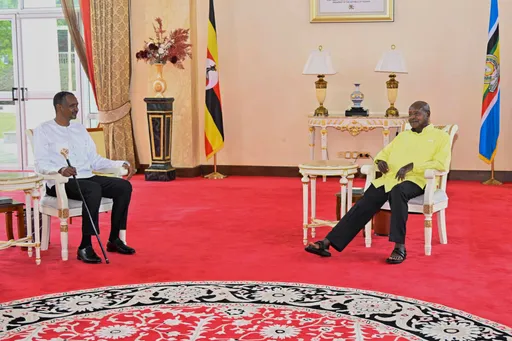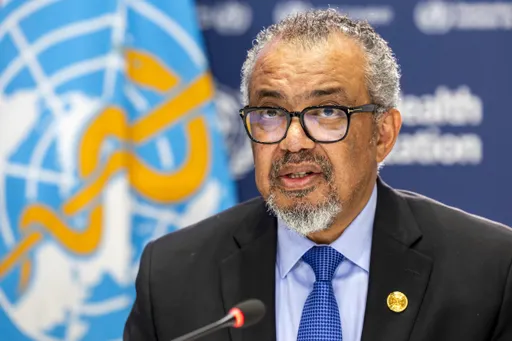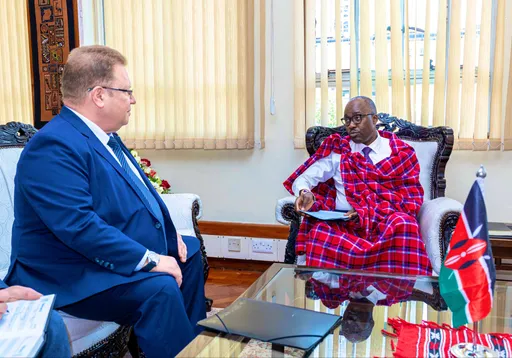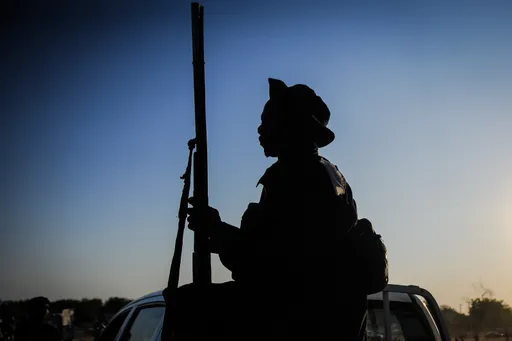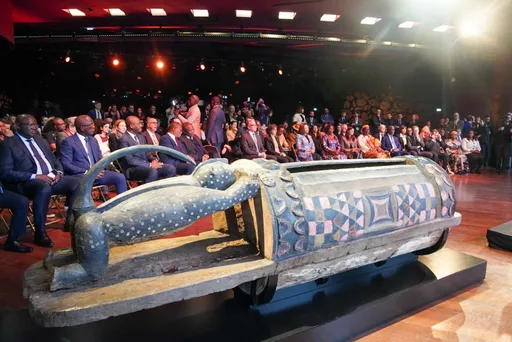By Hinda Abdi Mohamoud
As the seemingly endless cycles of droughts, floods and conflicts continue to batter Somalia’s population, ever-growing numbers of people are fleeing to the outskirts of urban areas, especially the capital Mogadishu.
The United Nations estimates that, globally, more people will live in towns and cities than in rural areas by 2026. Mogadishu is said to be the second fastest-growing city in the world, largely due to the massive influx of displaced people, 79 per cent of whom are women and children.
According to a report by the NGO Refugees International, most of the millions of people fleeing from rural to urban areas in Somalia are not going home, not now and not ever. Some have lived in makeshift camps for more than three decades.
Many of the 4.3 million internally displaced people (IDPs) in the country have to find new ways of making a living. Most have lived as farmers and pastoralists. Their skills do not translate to making a living in the city. For this reason, they have to start all over again.
Thirty-one-year-old Fatima Mohamed Iise arrived in the Asal IDP camp in June 2023 with her seven children. The camp is home to about 800 families and is one of the newest settlements to spring up on the outskirts of Mogadishu.
She fled from Qoryoley district in southern Somalia’s Lower Shabelle region after drought killed all her livestock. Her husband stayed behind to protect their home and few other remaining belongings.
Work in restaurants
“We had a very good life as pastoralists. We had about 40 cows”, she says. “Now we have none, so I had no choice but to come to Mogadishu with my children.”
There was no humanitarian assistance available for Iise and her family when she arrived at Asal camp. She panicked as she had no idea how to feed herself or her children. Other women who arrived at the camp before her urged her to go to surrounding neighbourhoods and hunt for work.
“My nine-year-old daughter and I go out early every morning to look for work,” she says. “The only jobs we can find are laundry work and tidying up construction sites which pay between $1 and $1.50 a day. This is not enough to pay for basic necessities but it’s better than nothing at all.”
“We only have countryside skills and nobody needs these in the city.”
The IDP camps on the outskirts of Mogadishu are managed by informal settlement managers, locally known as ‘’gatekeepers’’, who serve as intermediaries between the camp residents and external actors.
Residents of Asal camp do not have regular jobs. Like Iise and her daughter, they go out every morning in search of day labour. The most common forms of work women find are cleaning people’s houses, doing their laundry and washing up in restaurants.
Children start working from the age of four or five. Girls wash dishes, boys shine shoes or work in restaurants.
The irregular money they earn, between $1 and $2 a day when they find work, keeps them trapped in a cycle of poverty.
Beyond imagination
“I use my earnings to buy rice, beans or maize meal. We eat once a day at lunchtime,” says Iise. The rest of the time we drink tea. My children and I go to sleep on empty stomachs.”
Like other displaced women, Iise faces the additional challenge of harassment from men, especially members of the security forces, camp managers and others in positions of authority.
Shelters at the camps are made from sticks and plastic and the IDPs mostly have no good clothes. Men often approach women and girls for immoral acts in return for food or employment.
“Men come to me offering to help me find a job or get some food,” says Iise. “Then they say they want something in return.”
Seventy-year-old Hawa (not her real name) and her three-year-old granddaughter have been living in Asal camp for seven months. When she first arrived, she was one of the few lucky people to receive some humanitarian assistance.
But supplies dried up in May after she refused an ‘’immoral’’ request from one of the men managing the camp and controlling the distribution of aid.
“The circumstances of my life now are beyond anyone’s imagination. It is hard to believe the reason why I no longer receive food aid but that is the truth.”
Nomadic life shattered
“The camp manager asked me to engage in some misbehaviour if I wanted food,” says Hawa. “I was shocked and angrily I rejected him. Since then I haven’t received a single grain of food.”
Hawa says there have been numerous cases similar to hers. “It is so sad,” she adds.
“The situation is better for IDPs who work in people’s houses because it’s women who stay at home while men go out to work,” Hawa says.
“The employers who are kindest to us are older women. They sometimes give us extra money.”
Now that she no longer receives aid, Hawa leaves the camp every morning to hunt for cleaning work in construction sites and restaurants. Sometimes she does laundry for families in nearby neighbourhoods.
She usually takes her granddaughter to work with her. Sometimes she leaves her in the care of other women in Asal.
One of the most desperate women in the camp is S’iido Hassan Moalim. She was forced to abandon her nomadic life in Kuntuwaarey district in Lower Shabelle after drought dried up the land and destroyed all her livestock. Moalim is not married and she has never had children. She is sixty-six year-old and visually impaired.
Washing clothes
“I live here alone,” says Moalim. “I believe I am the poorest person in this camp. I cannot see, I cannot work and I have received no voucher cards for food aid.”
Moalim’s neighbours sometimes share what they have with her but often she has nothing. “The weak have no rights,” she says.
Iisho Mukhtar Adam arrived in Asal camp at the end of June 2023 after fighting in Kuntuwaarey district forced her to flee her home with her three young sons. She started working as a cleaner and laundrywoman almost immediately and manages to buy some food for her children with her earnings.
“I wash the clothes and clean the houses of people who are better off than me,” she says. “I earn between $1 and $2 a day. I work long hours in order to manage the life of my family as best I can.”
Adam explains how IDPs who work in people’s houses are occasionally beaten by their employers who sometimes accuse them of stealing their property.
“At the end of the day, some people say they don’t have money to pay us and that we should come back the following day to collect it,” she says. “Others don’t pay us at all. They have no respect for us. Most employers look down on us but some more educated people treat us as better.”
She says there has been little help. The police tend to be busy dealing with Mogadishu’s security threats posed by Al Shabab terrorists.
“Nobody listens to us,” says Adam. “The only thing to do is tell the media about our plight and hope that somebody with the power and resources to do so will help us,’’ she pleads.
“Most people keep silent about it because they know that if they complain they will be expelled from the camp.”
'I want to set up business'
People living in one of Mogadishu’s oldest IDP camps, known as Allah dhowr, suffer similar problems to those in Asal.
Rahma Mohamed arrived there with her husband and four children in January 2022 after drought killed the family’s livestock in southern Somalia’s Kuntuwaarey district.
Every day Mohamed and her husband get up early and walk to the surrounding neighbourhoods in search of work. They leave their children with fellow residents of the camp.
“Often the people I work for pay me less than what we agreed on,” she says. “We might agree on $5 but at the end of the day they only pay me $3.”
Despite the challenges in Mogadishu, Mohamed has no intention of leaving.
“Despite being viewed as a refugee by people, I want to establish my own small business here to support my family.”
15-year-old Asmo Abdi Farah Ahmed went to koranic school in Mushaan district before drought forced her to flee to Mogadishu in 2023. Now she works alongside her mother as a maid and washerwoman.
“The children in neighbourhoods surrounding our camp go to school and play together,” she says. “Sometimes they make fun of me for not going to school. They say I am just a ‘village kid’”.
Even those who have lived in Mogadishu for years are looked down on and seen as temporary residents.
Solution on the way
“People here still consider me a displaced person, a refugee, even though I have lived here for 16 years,” says 60-year-old Mukhtar Abdalla Abdow. He fled his home area of Janaale more than 30 years ago, first to the central city of Galkayo, then to Mogadishu. “I consider myself a local resident,” he says.
“Many long-standing IDPs more closely resemble urban poor and have a different set of needs than new arrivals,’’ Refugees International says.
However, some of the residents of Mogadishu, like Juweeriya Mohamed Ibrahim, have a more welcoming attitude to IDPs.
“I see them as normal people who came here because their lives were threatened by floods, drought and conflict,” she says. “For me, if they have lived in Mogadishu for more than five years, I consider them to be residents just like me.”
“Others often say they are second-class citizens. I firmly believe they are not.”
As part of solution to the problems the displaced people face, the government of Somalia announced a plan to resettle the IDPs and improve their living conditions.
The country’s Prime Minister Hamza Abdi Barre launched the National Solutions Pathways Action Plan on September 4 in Mogadishu, raising hope on the plight of the IDPs. The five-year programme is expected to run from this year to 2029.
“One million Somalis returning to normal life will be a significant step to finding a durable solution for the displaced so they can be part of society to the country’s development,” the prime minister said.
The writer, Hinda Abdi Mohamoud, is Chief Editor of Bilan, Somalia’s first all-women media house based in Mogadishu.










